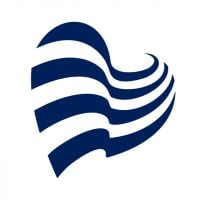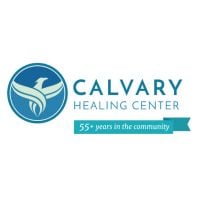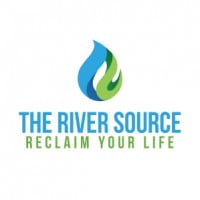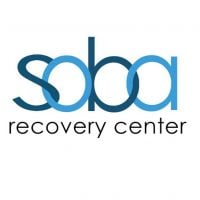Tilda Manor III
Drug Rehab Center in Gilbert, Arizona
- Mental Health
- Eating Disorder
- Dual Diagnosis
Tilda Manor III is an addiction treatment facility in Arizona that provides personalized treatment services, holistic approaches, and aftercare support for individuals dealing with addiction and substance abuse.
About Tilda Manor III in Arizona
Tilda Manor III is an addiction and substance abuse treatment facility in Gilbert, Arizona. Their facility provides a full range of treatment and support services for individuals and families dealing with the effects of addiction in their lives. The facility provides an individualized approach to treatment for each person, with an emphasis on empowering clients to identify and address their individual needs. They also provide aftercare and relapse prevention services to ensure that clients are supported in obtaining long-term sobriety.
At Tilda Manor III, they provide a variety of treatment services, including assessments, individual therapy, group therapy, case management, family therapy, and medication management. They also provide yoga, mindfulness, and other holistic approaches to help clients cope with the symptoms of addiction and build a healthy lifestyle. The facility also offers gender-responsive programming to ensure that each person's unique needs are addressed during their recovery.
Tilda Manor III is licensed by the Arizona Department of Health Services and is accredited by the Commission on Accreditation of Rehabilitation Facilities (CARF). They have also received numerous awards and recognitions for their high-quality treatment programs, such as being named one of the top-rated treatment centers in Arizona by numerous publications. Additionally, the facility offers a scholarship to those in need of treatment services, but can't afford any out-of-pocket expenses.
Genders
Ages
Modality
Additional
Conditions and Issues Treated
Dual diagnosis refers to someone who has both an addiction and a mental or emotional illness. Dual diagnosis treatment includes therapy for both issues simultaneously, allowing for effective treatment of either.
Sometimes people with addiction disorders also have co-occurring disorders like depression, anxiety, bipolar disorder, etc. These require specialized treatment programs that address both drug and alcohol addiction as well as psychiatric illnesses. Some rehabilitation facilities provide patients with co-occurring disorders a program with highly integrated services and a clean, distraction-free environment.
Levels of Care Offered
This center offers a variety of custom treatment tailored to individual recovery. Currently available are Dual-Diagnosis, Inpatient, with additional therapies available as listed below.
Inpatient treatment is a form of recovery used in drug rehab. Inpatient recovery offers individual therapy, groups, and family therapy to ensure that the addict has the best recovery possible. A variety of treatments are provided in this type of recovery, depending on what treatment the addict needs at that particular time.
The length of inpatient addiction treatment depends on the addict and their addiction. Inpatient rehabilitation can last anywhere from 30 days to 90 days, depending on how severe the drug abuse is. Inpatient rehab is a costly drug treatment, costing anywhere from $30k- to $60k. However, insurance often offers help in covering these costs.
Therapies & Programs
Attending group therapy at Tilda Manor III in , is a useful way for those seeking sobriety to realize they aren’t the only one going through it.
This is when a group of people on different recovery phases get together and talk about what they’re going through, their triggers, successes, and failures. This can include alternative types of therapies too! Group therapy may occur on an outpatient or inpatient basis with groups that have no pre-existing relationships outside the session, unlike support groups where everyone already knows each other beforehand.
Trauma therapy is a form of therapy used to help people process and understand past traumas. This can help struggling addicts, as many people turn to drugs or alcohol to mask the pain of their past. Trauma therapy can be done in several ways, such as through visualization, discussion, and writing down thoughts and feelings. The goal is to help the individual understand why they are having problems coping with certain situations and changing how they think and react to things. This is often done in tandem with other therapies to treat the underlying issues associated with addiction.
The idea behind trauma therapy is that while some people can experience traumatic events and not have lasting psychiatric symptoms, many others will. In these cases, memories get hidden from consciousness but continue to influence how the person processes and copes with things in their life. They may avoid situations that resemble what happened or become suddenly angry or irritated to a situation that reminds them of a past event. With the help of a therapist, people can go back over memories and experiences. This helps them understand why they are having problems coping with certain situations and changing how they think and react to things.
Cognitive Behavioral Therapy is a type of psychotherapy that helps people address the thoughts and behaviors that may have led to their addiction. It also helps change negative thoughts into positive ones and promotes healthy communication between addicts and those around them. CBT is an efficient treatment for individuals suffering from all sorts of addictions.
Cognitive Behavioral Therapy (CBT) focuses on the underlying thoughts and behaviors that caused the problem of addiction in the first place and may cause a relapse. Negative feelings are common in drug abuse disorders, but they can lead to co-occurring disorders if not recognized. CBT involves strategies that help to change the behavior pattern by restructuring negative thoughts into positive ones. It helps to remove these feelings, and it provides long-term benefits. Also, CBT promotes self-awareness, self-control and can be administered as a mono-therapy or as part of combination therapy.
Good nutrition can be difficult for people recovering from addiction because they may not feel like eating while they are experiencing the physical and emotional side effects of detoxing.
Nutrition therapy can help addicts in the following ways:
- Helps individuals to understand which foods promote good health and support recovery that will assist them during detox
- Provides guidance and education about how to maintain a nutritious diet so they can stay healthy during recovery
- Improves their overall health and well-being, which can reduce the severity of substance withdrawal symptoms.
Nicotine replacement therapy is a popular method of treatment that helps individuals overcome their addiction to cigarettes by providing them with safer alternatives. Nicotine replacement options can include:
- Inhalers
- Gum
- Patches
These treatments are often used in combination with other therapies, such as cognitive behavioral therapy or motivational interviewing, to help individuals more easily transition into a smoking-free lifestyle.
Patient Experience
Experiential Therapy at Tilda Manor III
Experiential therapy is a type of therapeutic approach that focuses on having patients work through problems, issues, or emotions by engaging directly in some real experience. It occurs face-to-face with a therapist who helps these people to explore their feelings first hand. The hope is that when this happens, the patient will feel driven to turn away from their destructive behavior and instead take up positive behaviors or coping mechanisms. Direct experience methods, role play, psychodrama, interpersonal and social learning are a few different forms of experiential therapy.
Payment Options Accepted
For specific insurance or payment methods please contact us.
Is your insurance accepted?
Ask an expert, call (888) 674-0062
Additional Details
Specifics, location, and helpful extra information.
Gilbert, Arizona 85298 Phone Number(480) 329-9338 Meta DetailsUpdated November 25, 2023
Staff Verified
Tilda Manor III Patient Reviews
There are no reviews yet. Be the first one to write one.
Gilbert, Arizona Addiction Information
Arizona has some of the highest rates of prescription drug abuse in the United States. Methamphetamines, heroin and morphine are among the most commonly abused substances. Prescription pain relievers were prescribed to 348 million people in 2012, enough to medicate every adult in Arizona for 2 full weeks. The number of people with substance use disorders in Arizona has remained relatively constant over the past few years.
The drug addiction problem in Gilbert, Arizona, is relatively moderate. According to recent statistics, around 9,000 people in the area struggle with addiction to drugs or alcohol. However, this problem continues to grow, and it is important for those affected to get help. There are many drug rehab facilities in Gilbert, Arizona, that can offer treatment and support to those struggling with addiction.
Treatment in Nearby Cities
- Mohave Valley, AZ (201.7 mi.)
- Mesa, AZ (13.6 mi.)
- Cave Creek, AZ (43.0 mi.)
- San Luis, AZ (185.3 mi.)
- Wickenburg, AZ (76.9 mi.)
Centers near Tilda Manor III
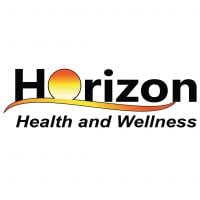
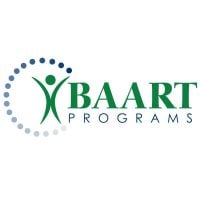
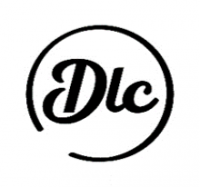

The facility name, logo and brand are the property and registered trademarks of Tilda Manor III, and are being used for identification and informational purposes only. Use of these names, logos and brands shall not imply endorsement. RehabNow.org is not affiliated with or sponsored by Tilda Manor III.

